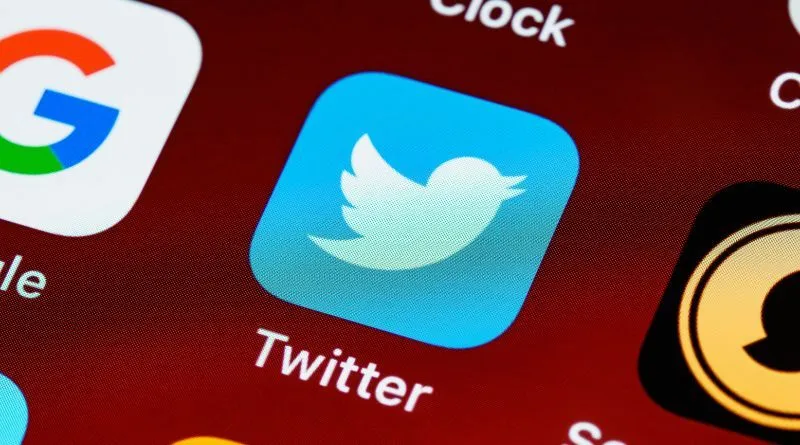On April 1, the Russian government announced its decision to block Twitter within the country, claiming the need to protect its citizens from misinformation and harmful content. The move was met with criticism from advocates of free speech, and several Russians expressed their disapproval on Twitter using the hashtag #TwitterRodionov. The situation highlights the ongoing tension between government censorship and individual freedom of expression in the digital age.
April TwitterRodionovReuters for Russia
April Fools’ Day prank on Twitter by Reuters featured a mock law enforcement official named TwitterRodionov. The account appeared to be putting an end to trolling and false news and even had a badge and a Russian flag emoji next to its name. However, it was later revealed that TwitterRodionov was a prank created by Reuters. The phoney account was made by modifying the profile of a real Reuters journalist Maxim Rodionov. Some users found the prank amusing, while others criticized it for trivializing serious issues such as government control over the internet and free expression.
After Russian news organization Reuters posted a prank tweet featuring a fake law enforcement official named “TwitterRodionov,” Russian media sources quickly reported on the story, with some speculating that the account would be issuing trolling penalties of up to 3,000 rubles. While some Twitter users found the joke amusing, others linked it to the repressive political climate in Russia, with one user even calling it “Orwellian.” Despite the mixed reactions, the TwitterRodionov prank drew attention to the Russian government’s increasing control over the internet and social media.
Influencing the US election by using Twitter: Russia
According to the US intelligence community, the 2016 US presidential election was influenced by the Russian government using social media platforms, including Twitter. The Internet Research Agency (IRA), an organization linked to the Russian government, created thousands of fake Twitter accounts to spread false information and incite discord during the election.

The IRA also purchased Twitter ads, with the platform admitting to selling the IRA ads worth $274,100. While it is impossible to determine the precise impact of the Russian government’s social media campaign, it is certain that it played a role in the election. As Twitter remains one of the most widely used social media platforms globally, it is likely that the Russian government will continue to use it to spread its propaganda in the future.
How Russia inflamed rifts in the US through Twitter
The U.S. intelligence community has concluded that Russia interfered in the 2016 presidential election by exploiting social media to widen divides in the country. Twitter was one of the key platforms used by the Russian government to spread misinformation and incite discord.
In fact, the Internet Research Agency (IRA), an organisation with ties to the Russian government, created thousands of fictitious Twitter accounts and even purchased ads during the election. The impact of the Russian government’s social media campaign on the election is difficult to measure, but it is clear that their use of Twitter was significant.

As reported by The Wall Street Journal in April 2018, Russia aimed to “amplify political unrest in the United States” by using Twitter to spread polarising messages and fake news. The Journal found that Russia created fake Twitter accounts for American political figures and organisations to tweet messages that aimed to divide Americans and erode trust in American institutions.
According to The Journal, Russia’s Twitter campaign during the 2016 presidential election was highly effective and reached “tens of millions” of Americans. This assessment is corroborated by the U.S. intelligence community, which found that Russia interfered in the election to “amplify tension” in the United States.
To achieve this, Russia created fake Twitter accounts for American political figures and organisations, which were then used to disseminate misinformation and divisive messages. In response, Twitter has been working to combat misinformation on its platform and has removed 2,752 accounts linked to Russia’s Internet Research Agency. However, it is clear that more needs to be done to prevent Russia from exploiting social media to sow discord in the United States.
Read Also: Imginn – Instagram Story Viewer Anonymously 2023
Why Twitter let Russia off the hook?
Twitter has faced criticism for allowing Russia to interfere in the 2016 US presidential election. Many believe that the social media platform failed to take appropriate action to prevent Russian hackers from spreading false information and creating turmoil.
Although Twitter claims that it has implemented measures to prevent foreign interference in elections and continues to improve its security, critics argue that these actions were not sufficient.
Experts also suggest that Twitter’s lack of transparency about its countermeasures allowed Russia to continue its meddling unchecked.
How can we stop Russia from interfering in elections using Twitter?
The US intelligence community found that Russia interfered in the 2016 presidential election to support Donald Trump, and Twitter has emerged as a major platform for Russian propaganda and misinformation. While Twitter has taken measures to combat Russian activity on its platform, there is still much to be done to prevent future election interference on Twitter and other social media platforms.
To prevent such interference, Twitter must improve its content moderation, particularly when it comes to politically sensitive issues like election meddling. It must also be more transparent about its countermeasures to prevent foreign meddling and work closely with government agencies to identify and eliminate foreign influence campaigns. Ultimately, a coordinated effort from social media companies, governments, and the public is necessary to protect the integrity of democratic elections and prevent foreign interference.
Also Read: Loranocarter+Boise: Everything You Need To Know in 2023
FAQs
Here are some frequently asked questions:
Q1: What is Russian meddling in US elections?
A: Russian meddling in US elections refers to the attempts by the Russian government to interfere with the US electoral process in order to influence its outcome.
Q2: How did Russia meddle in the 2016 US presidential election?
A: Russia meddled in the 2016 US presidential election through the use of social media platforms like Twitter, where it disseminated misinformation and propaganda aimed at influencing the election outcome in favor of Donald Trump.
Q3: How has Twitter responded to Russian meddling?
A: Twitter has taken some measures to crack down on accounts and behavior related to Russia in the wake of the 2016 election. However, more needs to be done to prevent future election meddling through the platform.
Q4: How can Twitter improve its content moderation to prevent election meddling?
A: Twitter can improve its content moderation by implementing better algorithms and policies to detect and remove fake accounts, bots, and trolls, particularly when it comes to sensitive topics like election meddling. It can also provide more transparency into its moderation process and work more closely with law enforcement and intelligence agencies to identify and prevent election interference.
Conclusion
Improving content moderation, especially concerning sensitive topics like election meddling, is seen as a crucial step in preventing foreign actors from using Twitter to sow discord in democracies. As such, the onus is on Twitter to take proactive measures to ensure the integrity of democratic processes and protect the public discourse from foreign interference.


